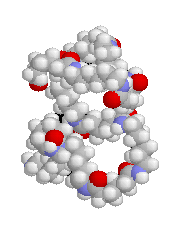Polymers in Healthcare: Improving Clinical Devices and Treatments
Polymers in Healthcare: Improving Clinical Devices and Treatments
Blog Article
Checking Out the Varied Applications and Advantages of Polymers in Different Industries
Polymers, with their varied array of buildings and capabilities, have actually ended up being vital in various markets, each reaping unique advantages from their application. Polymers. From improving safety and security and performance in the auto industry to revolutionizing medical devices in the health care sector, polymers play a critical function. In addition, their environmentally friendly nature is modifying the landscape of sustainability methods. As we dig right into the midsts of polymers in electronics, we reveal sophisticated innovations, while their structural honesty transforms the world of building and framework. The prevalent impact of polymers throughout sectors is a testament to their adaptability and versatility, forming the future of countless industries.
Automotive Industry Applications
Polymers play a critical duty in improving the efficiency and resilience of various components within the automobile sector. These versatile materials are thoroughly made use of in the production of various components, varying from indoor elements to under-the-hood applications. One prominent use polymers in the vehicle sector remains in the production of light-weight elements. By replacing typical steel components with polymer-based alternatives, automobiles can accomplish improved gas effectiveness without endangering on stamina or safety and security.
:max_bytes(150000):strip_icc()/three-dimensional-model-of-polyvinyl-chloride-165874889-5c425ea7c9e77c000188be6d.jpg)
Health Care Sector Benefits
In different medical care applications, the advantages of utilizing polymers are widely acknowledged for their diverse variety of helpful properties. Polymers play an important duty in the medical care industry because of their convenience, biocompatibility, and cost-effectiveness. One of the primary advantages of polymers in healthcare is their capability to be tailored to particular requirements, such as versatility, toughness, and biodegradability, making them optimal for a large range of clinical applications.
Polymer-based materials are extensively used in clinical tools, such as catheters, implants, prosthetics, and medication delivery systems, because of their biocompatibility and capacity to resemble all-natural tissues. These materials can reduce the threat of allergies or beings rejected, boosting client safety and results. Additionally, polymers are light-weight, making them suitable for wearable clinical tools and making certain client comfort.
Additionally, polymers allow the growth of innovative treatment techniques, such as hydrogels for cells engineering and nanocomposites for his response targeted drug distribution. Their convenience of processing and sanitation makes them important for keeping high standards of hygiene in health care settings. In general, the varied advantages of polymers add dramatically to innovations in medical technology and client care.
Environmental Benefits of Polymers

In addition, polymers can contribute to energy cost savings because of their lightweight nature. In industries such as transportation, light-weight polymer materials can help lower gas intake and greenhouse gas discharges. Additionally, polymers can enable the advancement of energy-efficient items such as insulation products that improve energy conservation in structures.
In addition, polymers play an important duty in minimizing water air pollution. The usage of polymer-based filtration systems can successfully get rid of contaminants and impurities from wastewater, protecting water sources and ecological communities. On the whole, the ecological benefits of polymers make them important possessions in advertising sustainability and environmentally friendly practices throughout different markets.
Polymers in Electronic Devices and Technology
Taking into consideration the raising need for innovative and sustainable remedies in modern-day sectors, the assimilation of advanced polymer modern technologies in the world of electronics and modern technology has actually become a critical method for driving performance and performance. Polymers have actually changed click for source the electronic devices sector by allowing the manufacturing of lighter, a lot more adaptable, and sturdy digital gadgets. From smart devices to clinical Recommended Site gadgets, polymers play a critical role in improving item style and functionality.
One substantial advantage of polymers in electronics is their shielding homes, which aid safeguard fragile electronic elements from ecological variables and electric interference. In addition, polymers are crucial in the development of versatile screens, wearable technology, and published electronic devices, offering endless possibilities for producing smart and interconnected devices.
Moreover, using polymers in electronic product packaging has led to improvements in miniaturization and thermal management, enhancing the overall performance and dependability of electronic systems. As innovation continues to develop, the convenience and versatility of polymers will certainly drive further development in the electronic devices industry, shaping the future of technology.
Duty of Polymers in Construction and Infrastructure
The assimilation of advanced polymer materials in building and framework jobs has revolutionized the way frameworks are developed and integrated in modern times. Polymers offer many benefits in the construction market due to their adaptability, durability, and cost-effectiveness. One crucial role of polymers in building is their usage in finishes and sealants, providing protection versus ecological factors such as wetness, UV radiation, and corrosion. Furthermore, polymers are made use of in the manufacturing of light-weight and high-strength composite materials, boosting the structural stability of buildings while minimizing general weight.
Moreover, polymers play an essential role in lasting construction practices by enabling the growth of energy-efficient structures. Shielding products made from polymers assist regulate interior temperatures, decreasing the need for home heating and cooling systems and ultimately decreasing energy usage - Polymers.
Final Thought
In verdict, polymers play a crucial duty in numerous sectors such as auto, healthcare, environmental, electronic devices, and construction. From enhancing fuel efficiency in cars to improving medical tools, polymers use numerous advantages.
Report this page